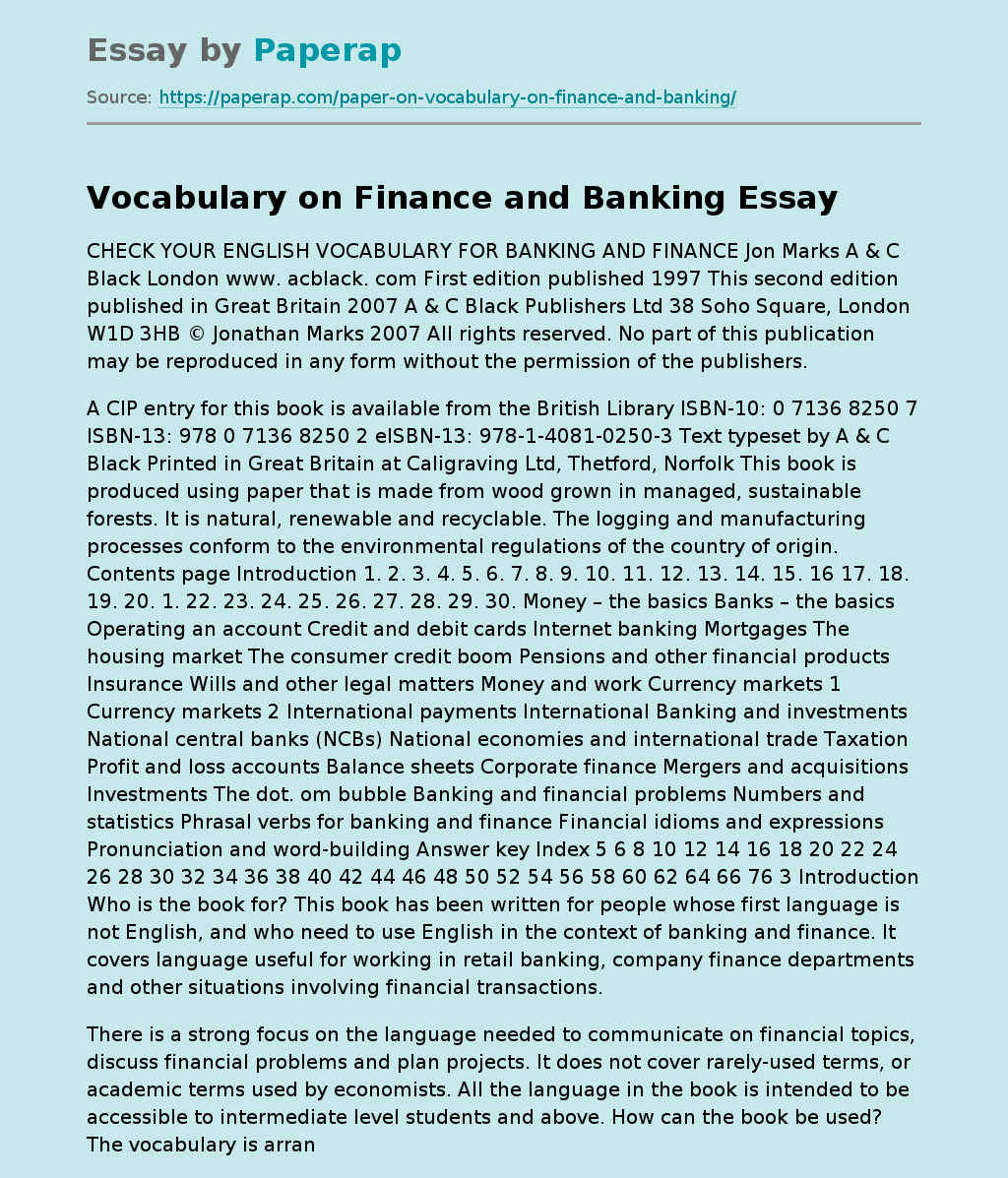Vocabulary on Finance and Banking: Banking Terms
Banking terms “abundantly” used by financial workers often put us in an awkward position. Instead of asking for an explanation of a particular banking concept, and at the same time offering to use terms and words that are understandable to everyone, we pretend that we understand what is at stake. In order not to find yourself in a similar situation, we have prepared for you a short dictionary of basic banking terms and concepts.
Acceptance. The obligation of the payer to pay the invoice issued for payment in due time.
Promotion. A document in the form of a security. The owner of the share is the participants (owner) of the joint-stock company and has the right to receive part of the profit (dividends) of this enterprise.
Annuity. This banking term is often used when applying for a loan. And it implies one of the ways to pay off the loan, namely, monthly, in equal amounts.
Bank-guarantor. The bank that pledged and pledged to make payments for its client.
Cashless payments. Cashless payments are used between organizations that have a bank account for this.
BRIC. Abbreviation of the four countries Brazil, Russia, India and China
Broker. Mediator between sellers and buyers. Transactions are carried out on the exchange.
Credit Bureau. Modern banking term. BCI is an organization that stores data on organizations and individuals who have or have had loans from banks. A positive credit history has recently become a decisive factor for a positive loan decision.
Gross Domestic Product (GDP). This term is used nationwide.
Means the market value of all goods produced and services rendered for the year.
Foreign exchange risk. Changes in the exchange rate may lead to a decrease or increase in the purchasing power of the national currency in the international market. The same product may cost less or more in terms of national currency.
Bill of exchange. A bill of exchange is a document in which the debtor undertakes to repay the debt within the specified period. A bill of exchange can be registered or issued to the bearer.
The World Bank. International financial organization, founded in 1944, as a result of an agreement between 45 states. At the same time, the International Monetary Fund (IMF) was created.
Secondary mortgage. An apartment or other real estate can be used twice as collateral for a bank loan. This is possible when the total amount of loans does not exceed 80% of the value of the object.
Hyperinflation. The process of a sharp rise in inflation, leading to the depreciation of money and a sharp jump in the prices of goods and services.
Government loans. Just like individuals, organizations, the state takes loans. Government loans are divided into bonded (from the Savings Banks) and non-bonded (intergovernmental loans).
Grace period. This term can often be heard when applying for a credit card. Grace period allows you to use credit funds of a bank card without accruing interest. There are certain conditions for the onset of its action.
Vocabulary on Finance and Banking: Banking Terms. (2018, Aug 14). Retrieved from https://paperap.com/paper-on-vocabulary-on-finance-and-banking/

